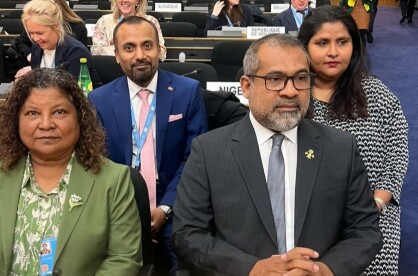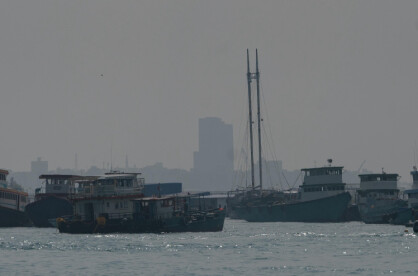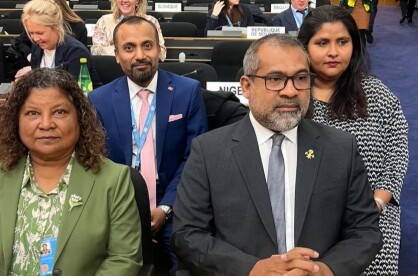The ageing population of the Maldives has been in the spotlight over the past couple of years. Previously overlooked, the declining birth rate and the shrinking working-age demographic are now causing alarm. With this, The World Bank has raised concerns about the sustainability of the country's costly pension system, highlighting these demographic trends.
In its recent report, “Rethinking Social Protection in South Asia: Towards Progressive Universalism,” the World Bank predicts a dire future for the Maldives' pension system if it continues on its current trajectory. Currently, 7% of every employee’s salary (14% when combined with employer contributions) is deposited into the pension fund monthly. Upon reaching the age of 65, individuals receive a pension from this fund. Additionally, basic pensions are provided to those who are unemployed, unable to save through the Retirement Pension Scheme, or whose savings fall short of providing adequate pensions. This universal coverage means that all individuals, regardless of employment status, receive a pension upon reaching the age limit.
This model works well when a large portion of the population is working and contributing to the pension fund. However, with a declining working-age population and birth rate, this model is becoming unsustainable. According to statistics by The World Bank, The Maldives, while excelling in social security, infant mortality rates, child development, and poverty reduction in the region, the country is now facing a significant financial downturn. This has been notable, especially in the past few years, causing many to fear the Maldives’ economy to crash similar to the neighbouring country Sri Lanka. While the government is grappling with debt and searching for new revenue streams to fix the debt situation of the country, the World Bank reports that by 2050, the Maldives will have the largest elderly population in South Asia, necessitating substantial pension payouts. This would cause an added burden on the Maldives, which is already struggling to manage its finances - having to add on to its budget every single year due to shortages.
With this, The World Bank has made it clear in its reports that midst its severe debt situation, the Maldives must re-evaluate its financial strategies.
The World Bank has proposed several measures to make the pension system more sustainable:
1. Allocate a portion of the pension scheme to introduce insurance benefits for the unemployed.
2. Establish standards for withdrawals from the pension scheme for individuals with permanent disabilities and life-threatening illnesses.
3. Implement a state-sponsored life insurance program based on pension fund contributions.
4. Increase flexibility for mortgage and down payment arrangements, ensuring repayment into the pension fund.
5. Provide additional incentives to encourage contributions to pension funds.
Currently, the old age pension in the Maldives costs at least MVR 5,000 per month. The World Bank warns that this amount is unsustainable as the working population shrinks and the elderly population grows. By re-evaluating the pension system rules, the Maldives can create a more sustainable model to support its ageing population.







